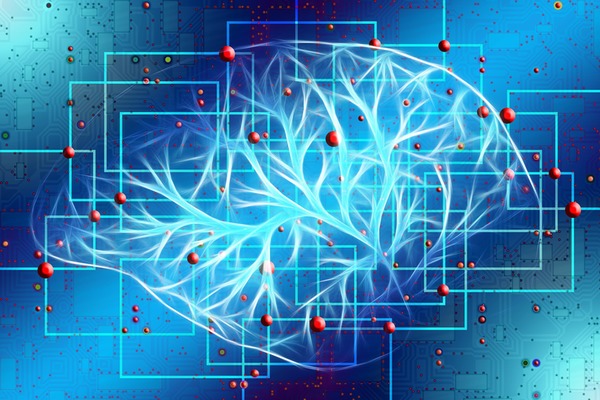
How often do you reflect on the ways technology changes your life as a marketer?
I’m not talking full-on paradigm shifts here. (“We do our marketing… on the internet.”) I mean the sly, step-by-way manner in which new tech slides neatly into your existing stack and subtly reframes the game on you.
These changes don’t always alter your job in dramatic ways, but they eliminate the hassles and headaches. They may speed up your time to results, automate painful routines, and enable you to focus on what matters most. (Remember what collaborating on a document looked like ten years ago? Remember printed memos?)
Very rarely, these technologies also let you do things you’d never considered possible.
No incoming martech makes a better case for this sort of incremental innovation than artificial intelligence. While new AI products are surely on the horizon—self-driving cars are coming any day now, possibly, maybe—AI’s most dramatic effect on your job today lies in adding new features across the tools that you’re already using.
When you’re living it, of course, this type of change can be hard to notice. It’s like suddenly realizing you desperately need a haircut after three months in lockdown. But, one day soon, you’ll marvel at all the things AI sneakily helped pull off your plate. Because when marketing meets AI, magic happens. It can feel inevitable—but that doesn’t mean you don’t need to pay attention.At Yellow Pages -Courtesy of Unbounce, we not only believe that applied AI is the future of marketing, we also think marketers tuned in to what’s happening now stand to benefit in a big way in 2020 and beyond.To put it another way, marketing and AI is a love story for the ages.
Marketing and AI: A “Meet Cute”
Strong AI or Artificial General Intelligence (AGI) is what most people think of when someone says AI.
This technology replicates neural networks (not necessarily human ones) to perform highly sophisticated cognitive tasks. AI researchers typically take this one step further, though. According to them, AGI “controls itself autonomously, with its own thoughts, worries, feelings, strengths, weaknesses, and predispositions.”
Teams across the world are working on AGI, but the closest to a consensus from researchers is that we might see it sometime within our lifetime. And some skeptics doubt we’ll ever see AGI, let alone more advanced forms.
Artificial Narrow Intelligence (ANI)
So handing over your marketing campaigns—or, gulp, your job—to an AI is decades or centuries away. But weak AI or Artificial Narrow Intelligence (ANI), sometimes also called “applied” or “pragmatic” AI, is available to marketers today. Right now.
As the name suggests, ANI focuses on narrow problem-solving applications. In the world of marketing, this means taking on specific, repetitive tasks to deliver additional business value. It may learn and make decisions independent of your input, but mostly this AI tackles the work you’d rather not.
But here’s the thing: ANI might not challenge our fundamental conceptions in the same way AGI does, but it’s having a transformative impact on our lives (and jobs) nonetheless. It integrates so deeply into our everyday lives that we don’t have to think about it. Chances are good you’re already using ANI, whether you know it or not.
Don’t believe me? Let’s take a look at a few places you might be encountering ANI today, either as a consumer or as part of your job. I admit that here that this list is not even close to comprehensive, but that’s my point: AI is slowly but surely filling all the cracks in our marketing stacks. (And, hey, that rhymes, so it must be true.)
Product Recommendation and Content Curation
Companies like Amazon and Netflix made fortunes by pointing people at more things they might want to buy. Much of these efforts are powered by sophisticated algorithms that let them match the right products and content with the right customer.
Amazon, for example, runs on a recommendation engine that’s been driving significant business value for more than 20 years. From the early days of user-based collaborative filtering (i.e., an algorithm making recommendations based on similarities between users) to more scalable solutions driven by a deep learning framework called DSSTNE.
DSSTNE is pronounced “destiny,” by the way—as in “buy this jewel-encrusted toilet brush… because it’s your destiny.” They’re not subtle.
Netflix doesn’t sell products, but they similarly credit the combination of contextually-aware recommendations and personalization (both powered by machine learning models) with saving them $1 billion a year.
How does this work? By reducing one-month churn by several percentage points. In the crucial 60 to 90 seconds that a customer will spend browsing before quitting the app in frustration, Netflix serves up content most likely to appeal to people with similar tastes. And it works: 80% of what people watch comes from a recommendation.
Say you’re not Amazon or Netflix, though. Say you’re part of a small team or a startup tight on resources. What can you do?
The good news is that today’s marketers can similarly take advantage of AI-powered recommendation engines on a more affordable scale.
Not only is some of this tech available to your developers, but more than one tool exists right now that lets you deliver product and content recommendations based on audiences, their intents, and their interests. Their availability will only increase in the months and years to come.
AI-Enhanced PPC Campaigns
Like Amazon and Netflix, Google will stick AI almost anywhere, even before its fully baked—from Gmail’s Smart Compose, which lets you email platitudes at lightning speed, to the AI-based noise-canceling feature recently added to Google Meet. Then there’s BERT and RankBrain’s role in search, and TensorFlow’s application to encryption, translation, robotics, and more… (The ellipsis is well-earned here.)
For digital marketers, one of the most significant use cases for machine learning has been in Google Ads. In a couple of years, Google’s Smart Bidding technology has gone from a curiosity that, at best, once ruffled a few feathers to something that has PPC experts rethinking how they’re spending their time.
According to Workshop Digital’s Andrew Miller, this sort of tech has overturned a lot of longstanding PPC best practices.
Smart Bidding was once a neat trick that couldn’t hold a candle to an experienced human. Experts like Andrew tried it out, and many wrote it off. (Some still do.) But many PPC’ers point out that automated bidding is increasingly reducing the time spent on manual bid management.
Are agencies running for their lives because of AI-powered enhancements like Smart Bidding? Definitely not. But roles are changing as today’s PPC specialists spend more time on higher-level strategy and specialized growth tasks. For an industry that thrives on staying current, AI is a net positive.
Machine Learning and Conversion Rate Optimization
Roles are changing on the other end of the funnel too. When it comes to delivering more conversions from your landing pages, A/B testing is still very effective. But running tests also demands time, traffic, and expertise that marketers don’t always have. For small businesses especially, these minimum requirements put optimizing out of reach.
Enter artificial intelligence.
Around 2017, our R&D team realized machine learning has the potential to remove these hurdles from A/B testing—and free marketers to focus more on what humans do best. AI can even do things when testing that no human can do, making decisions on the fly about what version of a landing page is best for what type of visitor.
After three years of training a machine learning model, and investigating different ways to apply it, we arrived at Smart Traffic, a feature that fulfills this promise and makes AI-powered optimization available to Unbounce customers.
Smart Traffic uses a contextual bandit algorithm to learn about your visitors based on attributes like location, device, browser, and timezone. Once you’ve created and published a few variants of your landing page—the only thing it can’t do at this point, frankly—Smart Traffic delivers each visitor to the one most likely to convert.
There are two things that Smart Traffic shares with the best martech AI solutions today. First, our customers see results just by turning it on. (Nothing cuts through hype like actually getting stuff done.) And, second, it never stops learning, getting better at its task during the life of a campaign, and adapting to changes in traffic sources without human intervention.



.png)
.png)